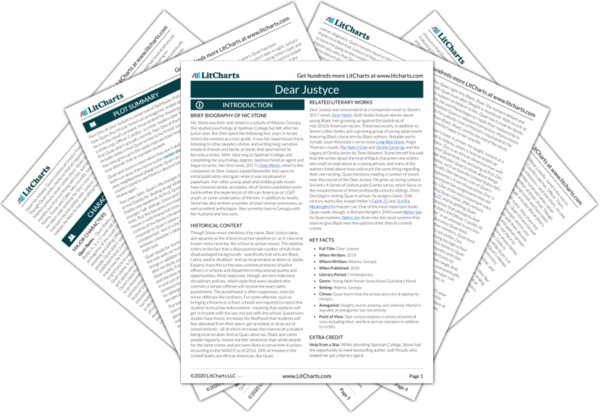is also writing to share something he and talked about earlier. Doc brought the book
Native Son for Quan to read. It’s brutal—it’s about a Black man who accidentally kills a white girl and fabricates a plot to frame the girl’s boyfriend. He’s eventually convicted. But even though the story is set in the 1930s, Quan felt like he was reading something contemporary. The protagonist couldn’t get past obstacles, no matter what he did, and it was almost unavoidable that he committed crimes. As Quan’s former mentor, , would say, the “institutions of oppression” made the protagonist’s fate seem like destiny.


